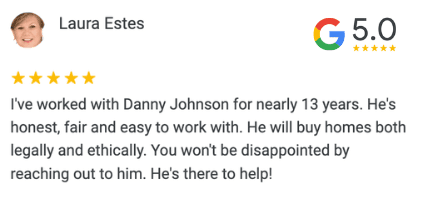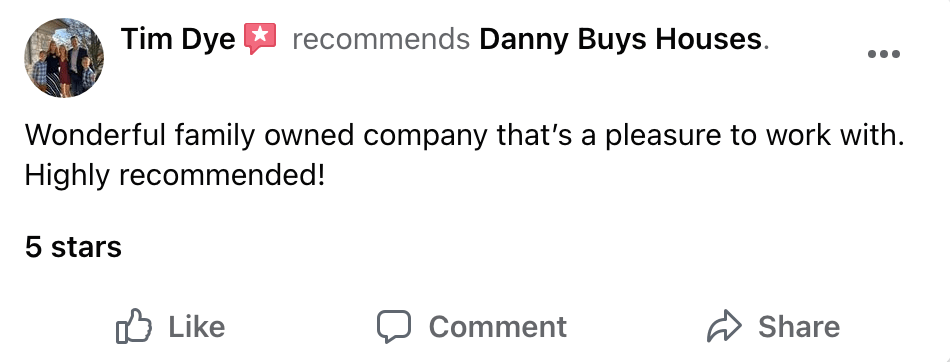
Facing Foreclosure? Learn How Long You Can Remain in Your Home After the Sale!
By Danny Johnson | Updated 9/27/2024, 1:42:15 PM
Facing foreclosure? Discover how long you can stay in your home after the sale and understand the eviction process in Texas under state law.
- Key Takeaways:
- How Long After Foreclosure Do I Have to Move Texas?
- What Happens After Foreclosure?
- How a Foreclosure Sale Works
- Texas Post-Sale Redemption Period
- What happens to tenants when a property is foreclosed in Texas?
- Solution: Sell Before Foreclosure To A Cash House Buyer
🗂 Table of Contents
Behind on your mortgage? Receiving a foreclosure notice can be scary.
Randall V. shared his experience in San Antonio, Tx with us, "I felt a sense of shame and of despair when I got the foreclosure notice after being behind on my mortgage for several months."
If you're facing foreclosure in Texas and are worried about what is going to happen after the foreclosure procedures, you're not alone. There's still hope, and knowing the foreclosure process and timeline can help.
In Texas, foreclosure happens fast. Lenders can start the process after just three to six months of missed mortgage payments. It's important to know the lender can also file for foreclosure for unpaid property tax. This is called a tax lien foreclosure. Once foreclosure starts, it can finish in as little as 30 days. But, there are options, and understanding the timeline is helpful.
After the foreclosure auction, if you have not vacated the house, you could face foreclosure eviction.
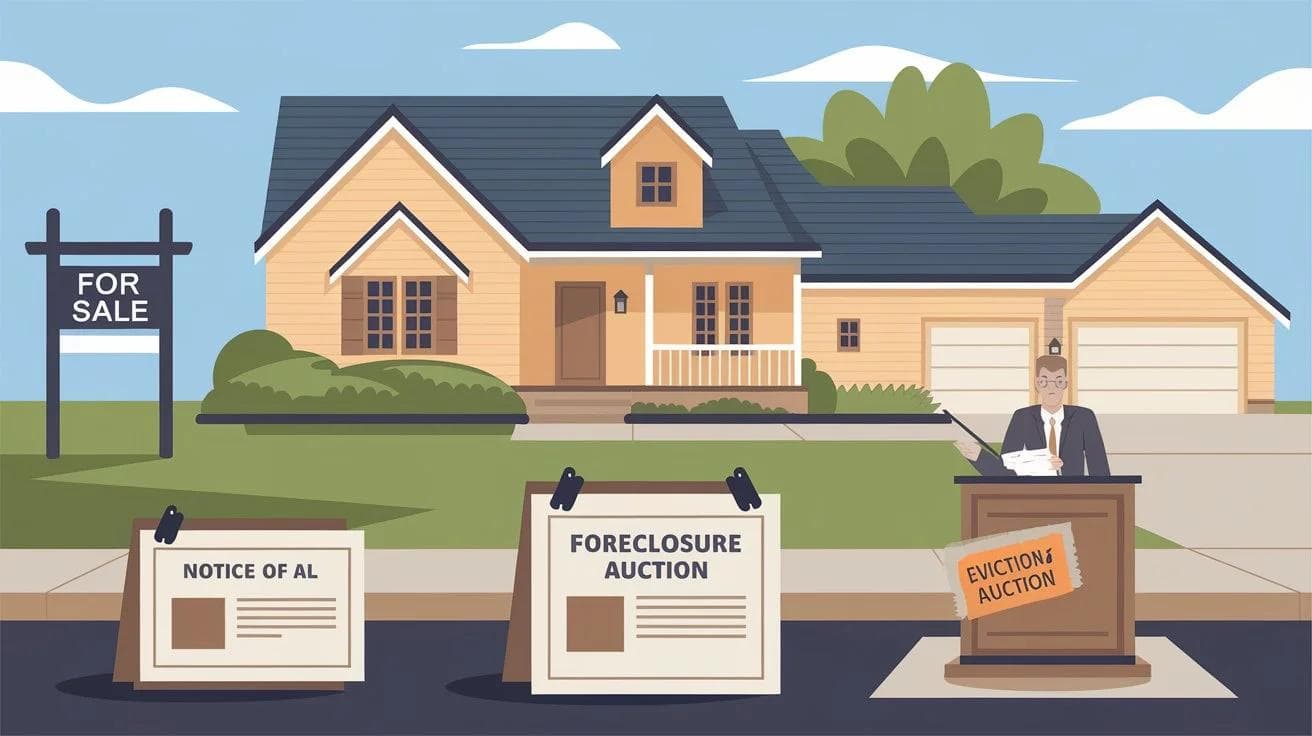
Texas state law allows both judicial and non-judicial foreclosures. Non-judicial foreclosures are faster, often done in 60 to 90 days. Judicial foreclosures, which involve the court, can take longer, sometimes over a year. Knowing which one you're facing helps you plan.
Foreclosure doesn't mean you have to leave right away. Even after the sale, you might have time to stay. The eviction process takes 3 to 30 days. This gives you time to find new housing or negotiate with the new owner.
If you would rather avoid the foreclosure altogether and are thinking, "I just want to sell my San Antonio house fast and avoid all this stress!", we will show you how to do that at the end of this article.
Key Takeaways:
- Foreclosure in Texas can start after 120 days from the first missed payment and you will get a notice of default
- You will get a notice of sale and the process can be completed in as little as 30 days
- Non-judicial foreclosures are faster than judicial ones
- You may have 3-30 days to vacate after the foreclosure sale
- Understanding the timeline helps you plan and explore options
How Long After Foreclosure Do I Have to Move Texas?
In Texas, you have only 3 days to move out after a foreclosure sale. The new owner must give you a written notice to vacate. This short time doesn't allow for much negotiation or planning. You will need to vacate the property.
If you don't leave the property on your own, the new owner can file an eviction. This process usually takes 3-4 weeks. Texas law is strict about protecting property rights, making it hard for former homeowners.
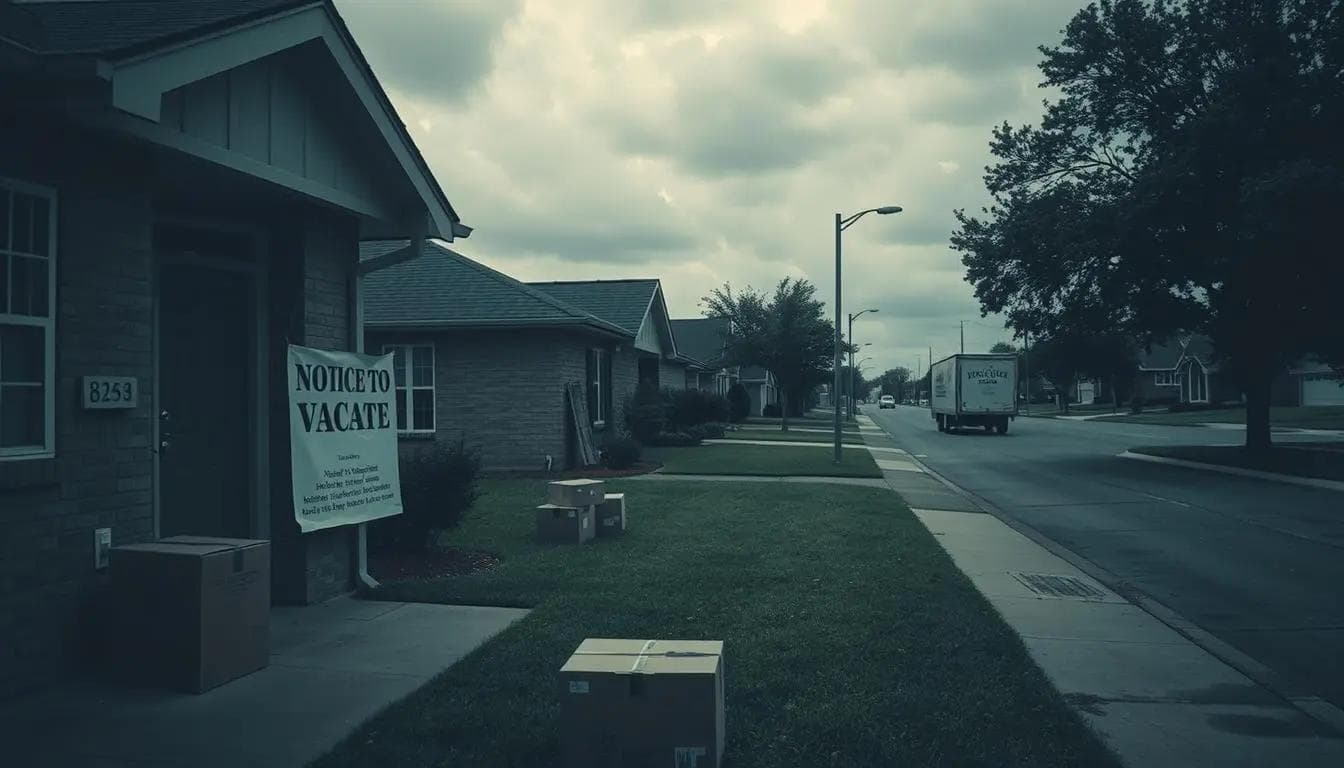
The foreclosure eviction process in Texas is as follows if you do not vacate within 3 days:
- A 3-day eviction notice to vacate
- An eviction lawsuit if needed
- A court judgment
- A writ of possession after 5 days
- A 24-hour warning posted at the property
If necessary, law enforcement or the sheriff may remove occupants who refuse to leave. The entire post-foreclosure process can take several weeks to months in Texas.
After a foreclosure sale in Texas, you have no redemption period. Your choices are very limited. From the first notice to vacate to the final eviction, the whole process can take 60 days or less.
There's an alternative to eviction: the cash for keys option. Some new owners might offer cash to leave quickly. This can be a good deal, avoiding eviction and helping you move on.
According to Stephen Michael White from RentPrep, "Although it may seem counterintuitive, cash for keys is often less expensive than going through a lengthy eviction process. Typically, the amount paid comes with stipulations based on the condition in which the property is left."
As you can see, the new owner could be open to helping you vacate to avoid an eviction.
If you think the foreclosure ruling was wrong, you can appeal within five days. But, because the eviction process is so fast, you must act quickly to protect yourself.
What Happens After Foreclosure?
The foreclosure process in Texas is complex and stressful. After a property is foreclosed, several steps follow. These steps affect both the former homeowner and potential buyers.
How a Foreclosure Sale Works
A foreclosure auction, also known as a trustee's sale, is the first step. The property is sold to the highest bidder. If no one buys it, the bank owns it as real estate owned (REO).
According the Texas State Law Library, "Foreclosure auctions are generally held the first Tuesday of each month between 10:00 a.m. and 4:00 p.m. at the county courthouse. The sale must begin at the time stated in the notice of sale, but no later than three hours after the time scheduled on the notice of sale."
Will you get any money from the sale of the your house at auction? That depends but typically the answer is no.
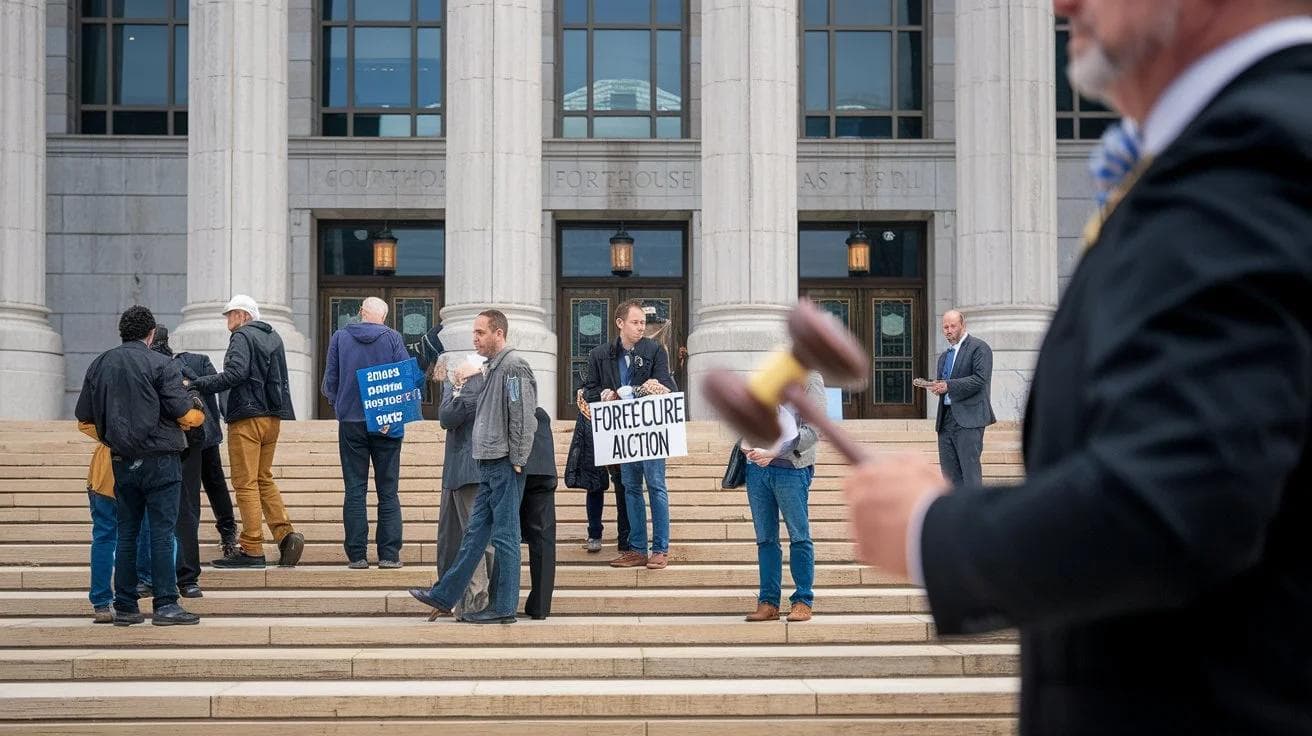
Texas Post-Sale Redemption Period
Texas law offers no redemption period for mortgage foreclosures. This means former homeowners can't reclaim their property after the sale. There are exceptions for tax foreclosures and HOA-related foreclosures:
- Tax foreclosures: 2-year redemption for homestead or agricultural property, 180 days for others
- HOA foreclosures: 180-day redemption period for former homeowners
What happens to tenants when a property is foreclosed in Texas?
Tenants in Texas face unique challenges when their rental property undergoes foreclosure. The Protecting Tenants at Foreclosure Act safeguards tenant rights in a foreclosure situations. This federal law ensures renters can stay in their homes for a certain period after foreclosure.
If you have a valid lease agreement, you can typically remain in the rental property until your lease ends. This applies even if the property changes hands due to foreclosure. The new owner must honor your existing lease terms.
There's an exception to this rule. If the new owner plans to use the property as their primary residence, they can end your lease early. In this case, you're entitled to at least 90 days' notice before you need to move out.
- Tenants with month-to-month leases get 90 days' notice before eviction
- New owners must follow legal procedures for eviction
- Lease agreements remain valid after foreclosure in most cases
It's crucial to know your rights as a tenant during foreclosure. If you receive an eviction notice, don't panic. Review your lease and consult with a legal professional to understand your options. Remember, the new property owner can't simply kick you out without following proper legal procedures.
According to the Consumer Financial Protection Bureau, "If someone contacts you claiming to be the new property owner, ask to see documents that show ownership. Do this before paying rent, signing a new lease agreement, or allowing them to come inside the property. Scammers review publicly available foreclosure recordings and may contact tenants living in foreclosed properties to falsely demand rent."
This statistic highlights the importance of understanding tenant rights in various housing situations, including foreclosures. Stay informed and protect your rights as a renter in Texas.
Solution: Sell Before Foreclosure To A Cash House Buyer
There are alternatives to foreclosure.
Are you a borrower facing foreclosure in Texas? Maybe you've considered bankruptcy to stop the foreclosure, but would rather avoid that process and the damage to your credit.
Selling to cash home buyers might be a good option. Getting cash for your house can help you avoid foreclosure and its harm to your credit.
Cash buyers offer a speedy solution, closing deals in days or weeks. This is important because lenders start foreclosure proceedings 120 days after the first missed payment.
If you owe more money than you are being offered by a house buying company, you could attempt a short sale. Choosing a short sale can settle your debt and avoid foreclosure stress.
Selling to cash buyers might mean getting a lower price. But, it saves you from repairs, staging, and agent fees. This is especially helpful in Texas, where there's no redemption period after sale. Make sure to research reputable cash home buyers for a fair deal.
Contact Danny Buys Houses in San Antonio, TX to get a fair cash offer within 24 hours. We would love to help you in any way we can, even if we do not buy your house.

AUTHOR
Danny Johnson
Owner and Founder at Danny Buys Houses
Danny Johnson is an experienced real estate investor who has been buying houses for cash since 2003. As owner of Danny Buys Houses, Danny's goal is to help homeowners sell their house fast, regardless of the situation, so they can move on with their life.
Danny has been featured in publications such as Forbes, Realtor.com, BiggerPockets, Yahoo Finance, US News, and more. He is also the author of the book 'Flipping Houses Exposed'.


